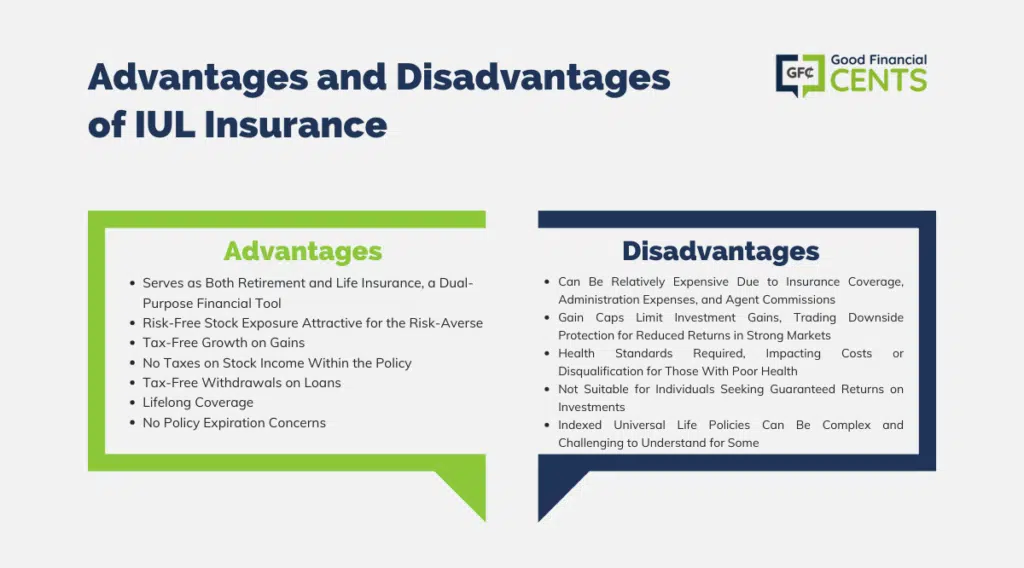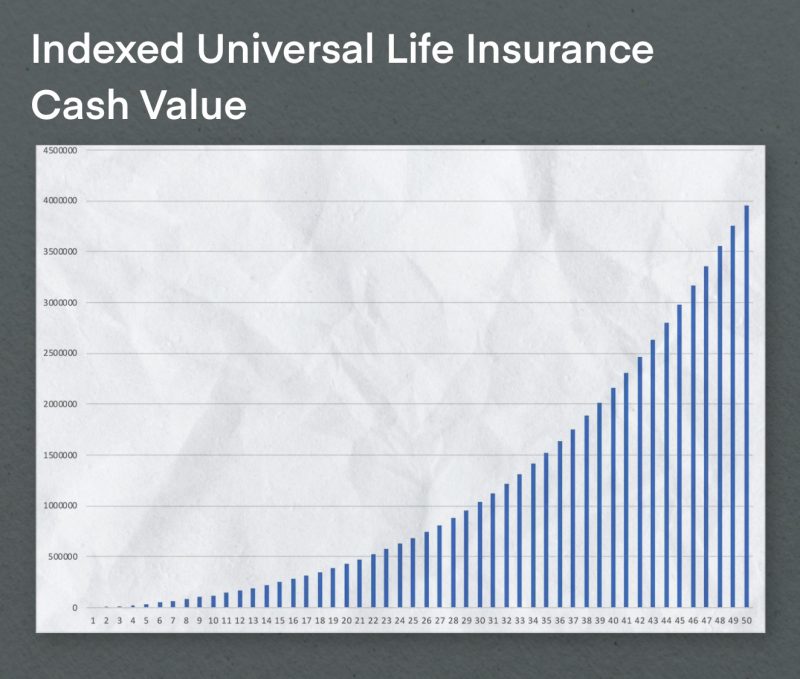All Categories
Featured
Table of Contents
[/image][=video]
[/video]
You can underpay or avoid premiums, plus you may be able to change your death advantage. What makes IUL different is the method the cash money worth is invested. When you get an indexed global life insurance policy policy, the insurer supplies several options to select a minimum of one index to make use of for all or component of the money worth account section of your plan and your death benefit.
Adaptable costs, and a survivor benefit that may also be adaptable. Money value, along with potential growth of that value through an equity index account. A choice to allot part of the money worth to a fixed passion alternative. Minimum rates of interest guarantees ("floors"), however there may additionally be a cap on gains, normally around 8%-12%. Collected money value can be used to reduced or potentially cover premiums without deducting from your fatality advantage.
Best Indexed Universal Life Insurance Companies
Insurance policy holders can decide the portion alloted to the taken care of and indexed accounts. The worth of the selected index is tape-recorded at the beginning of the month and contrasted with the worth at the end of the month. If the index enhances throughout the month, passion is included in the cash money worth.
The 6% is multiplied by the cash money value. The resulting rate of interest is included in the cash worth. Some plans compute the index acquires as the sum of the changes through, while other policies take approximately the daily gains for a month. No rate of interest is credited to the cash account if the index goes down rather of up.
Transamerica Financial Foundation Iul Reviews
The rate is established by the insurer and can be anywhere from 25% to greater than 100%. (The insurance company can also change the take part price over the life time of the plan.) As an example, if the gain is 6%, the participation price is 50%, and the existing cash money worth overall is $10,000, $300 is included to the cash value (6% x 50% x $10,000 = $300).
There are a number of pros and disadvantages to think about before purchasing an IUL policy.: As with common universal life insurance policy, the policyholder can enhance their premiums or lower them in times of hardship.: Quantities attributed to the money worth grow tax-deferred. The cash value can pay the insurance premiums, enabling the policyholder to decrease or stop making out-of-pocket premium payments.
Lots of IUL policies have a later maturation day than various other types of global life plans, with some ending when the insured reaches age 121 or even more. If the insured is still active at that time, plans pay the fatality benefit (however not usually the cash worth) and the profits might be taxed.
Fixed Index Universal Life Insurance
: Smaller sized plan face values don't supply much benefit over routine UL insurance coverage policies.: If the index drops, no rate of interest is attributed to the cash value. (Some plans offer a reduced ensured price over a longer duration.) Various other financial investment lorries utilize market indexes as a benchmark for efficiency.

With IUL, the goal is to make money from upward motions in the index.: Due to the fact that the insurance business only gets choices in an index, you're not straight spent in supplies, so you don't profit when firms pay returns to shareholders.: Insurers cost fees for managing your money, which can drain cash money value.
For a lot of individuals, no, IUL isn't far better than a 401(k) in terms of conserving for retired life. The majority of IULs are best for high-net-worth individuals seeking means to decrease their gross income or those who have maxed out their other retired life choices. For every person else, a 401(k) is a far better financial investment lorry because it doesn't carry the high fees and premiums of an IUL, plus there is no cap on the quantity you may gain (unlike with an IUL plan).
While you might not lose any kind of money in the account if the index goes down, you will not earn passion. If the marketplace turns bullish, the earnings on your IUL will certainly not be as high as a common financial investment account. The high price of premiums and fees makes IULs costly and significantly much less budget friendly than term life.
Indexed universal life (IUL) insurance provides money value plus a fatality benefit. The cash in the money worth account can make rate of interest with tracking an equity index, and with some typically alloted to a fixed-rate account. However, Indexed universal life policies cap just how much money you can accumulate (usually at less than 100%) and they are based upon a possibly unstable equity index.
Freedom Global Index Universal Life

A 401(k) is a far better choice for that function since it does not bring the high charges and premiums of an IUL plan, plus there is no cap on the amount you may earn when spent. Most IUL policies are best for high-net-worth people seeking to reduce their gross income. Investopedia does not offer tax, financial investment, or monetary services and suggestions.
Your present browser may restrict that experience. You may be using an old browser that's unsupported, or setups within your web browser that are not compatible with our site.
Your present web browser: Discovering ...
When your selected index gains value, worth too does as well policy's cash value. Your IUL money worth will also have a minimum rate of interest rate that it will always make, no matter of market efficiency. An IUL plan works the exact same method as a traditional universal life policy, with the exception of how its money value gains rate of interest.
Iul Calculator Excel
If you're considering acquiring an indexed global life policy, initial speak to an economic consultant that can describe the subtleties and provide you a precise photo of the real possibility of an IUL policy. Ensure you understand how the insurance provider will calculate your rate of interest, incomes cap, and charges that may be evaluated.

Part of your premiums covers the policy price, while the remainder goes into the cash value account, which can expand based upon market efficiency. While IULs could appear appealing, they usually include high charges and stringent terms and are completely improper for many financiers. They can create rate of interest however also have the prospective to lose cash.
Right here are some variables that you should consider when establishing whether a IUL plan was right for you:: IULs are complex monetary products. Make sure your broker completely discussed exactly how they function, consisting of the costs, financial investment threats, and fee structures. There are more affordable options offered if a fatality advantage is being sought by an investor.
Understanding Indexed Universal Life Insurance
These can significantly decrease your returns. If your Broker stopped working to give a thorough description of the expenses for the plan this can be a warning. Understand surrender fees if you make a decision to terminate the plan early.: The financial investment element of a IUL undergoes market fluctuations and have a cap on returns (definition that the insurance provider obtains the benefit of outstanding market efficiency and the financier's gains are covered).
: Guarantee you were told regarding and are able to pay sufficient costs to keep the policy in pressure. It is vital to completely research study and understand the terms, charges, and prospective threats of an IUL policy.
Typical development investments can usually be combined with more affordable insurance policy alternatives if a fatality benefit is vital to a capitalist. IULs are excluded from federal law under the Dodd-Frank Act, meaning they are not looked after by the U.S. Stocks and Exchange Payment (SEC) like stocks and alternatives. Insurance coverage agents selling IULs are only called for to be accredited by the state, not to go through the exact same rigorous training as stockbrokers.
Latest Posts
Ed Slott Iul Tax Free Retirement
Best Iul Products
What Is Indexed Universal Life Insurance?